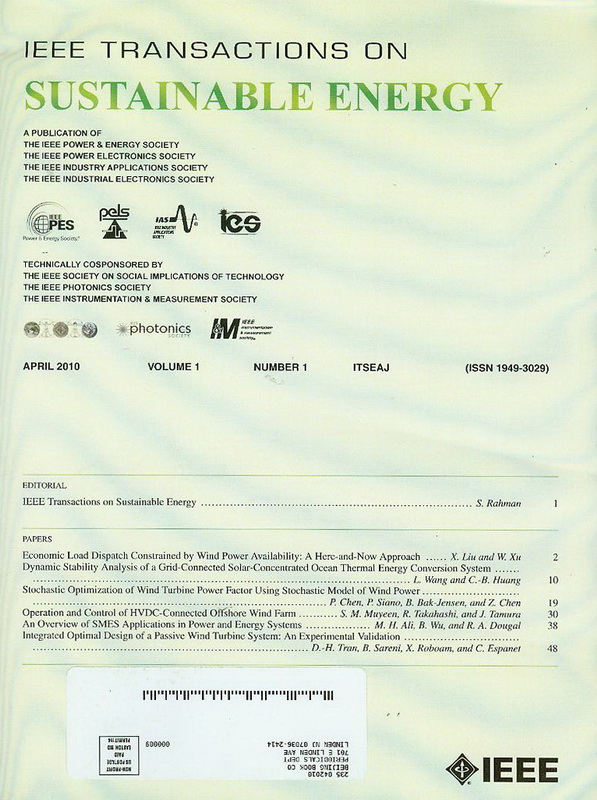Deep Learning-Based Failure Prognostic Model for PV Inverter Using Field Measurements
IF 8.6
1区 工程技术
Q1 ENERGY & FUELS
引用次数: 0
Abstract
This study presents a novel approach for the precise monitoring and prognosis of photovoltaic (PV) inverter status, which is crucial for the proactive maintenance of PV systems. It addresses the gaps in traditional model-based methods, which tend to neglect the overall reliability of inverters, and the limitations of data-driven approaches that largely depend on simulated data. This research presents a robust solution applicable to real-world scenarios. The proposed data-driven model for PV inverter failure prognosis employs actual inverter measurements, integrating various operational and weather-related factors based on domain knowledge. This approach effectively represents inverter stressors and operational status. Utilizing an Enhanced Siamese Convolutional Neural Network (ESCNN), the model merges operational data with domain knowledge features, redefining the prognosis challenge as a classification task. Furthermore, the paper discusses an ESCNN-based real-time inverter failure monitoring method developed on the well-trained model. The proposed models are rigorously trained and tested with real inverter data and a novel filtering method is included to address accidental failures in practical scenarios. The results validate the model's efficacy, and the directions for future research are also outlined.利用现场测量建立基于深度学习的光伏逆变器故障诊断模型
本研究提出了一种精确监测和预测光伏逆变器状态的新方法,这对光伏系统的主动维护至关重要。它弥补了传统基于模型方法的不足(这种方法往往忽视逆变器的整体可靠性),并解决了数据驱动方法的局限性(这种方法主要依赖于模拟数据)。这项研究提出了一种适用于现实世界场景的稳健解决方案。所提出的光伏逆变器故障预测数据驱动模型采用了实际的逆变器测量数据,并根据领域知识整合了各种运行和天气相关因素。这种方法能有效反映逆变器的压力因素和运行状态。利用增强型连通卷积神经网络(ESCNN),该模型将运行数据与领域知识特征相结合,将预报挑战重新定义为分类任务。此外,本文还讨论了在训练有素的模型基础上开发的基于 ESCNN 的实时逆变器故障监测方法。提出的模型经过了严格的训练,并使用真实的逆变器数据进行了测试,还包括一种新颖的过滤方法,以解决实际场景中的意外故障。结果验证了模型的有效性,同时还概述了未来的研究方向。
本文章由计算机程序翻译,如有差异,请以英文原文为准。
求助全文
约1分钟内获得全文
求助全文
来源期刊

IEEE Transactions on Sustainable Energy
ENERGY & FUELS-ENGINEERING, ELECTRICAL & ELECTRONIC
CiteScore
21.40
自引率
5.70%
发文量
215
审稿时长
5 months
期刊介绍:
The IEEE Transactions on Sustainable Energy serves as a pivotal platform for sharing groundbreaking research findings on sustainable energy systems, with a focus on their seamless integration into power transmission and/or distribution grids. The journal showcases original research spanning the design, implementation, grid-integration, and control of sustainable energy technologies and systems. Additionally, the Transactions warmly welcomes manuscripts addressing the design, implementation, and evaluation of power systems influenced by sustainable energy systems and devices.
 求助内容:
求助内容: 应助结果提醒方式:
应助结果提醒方式:


